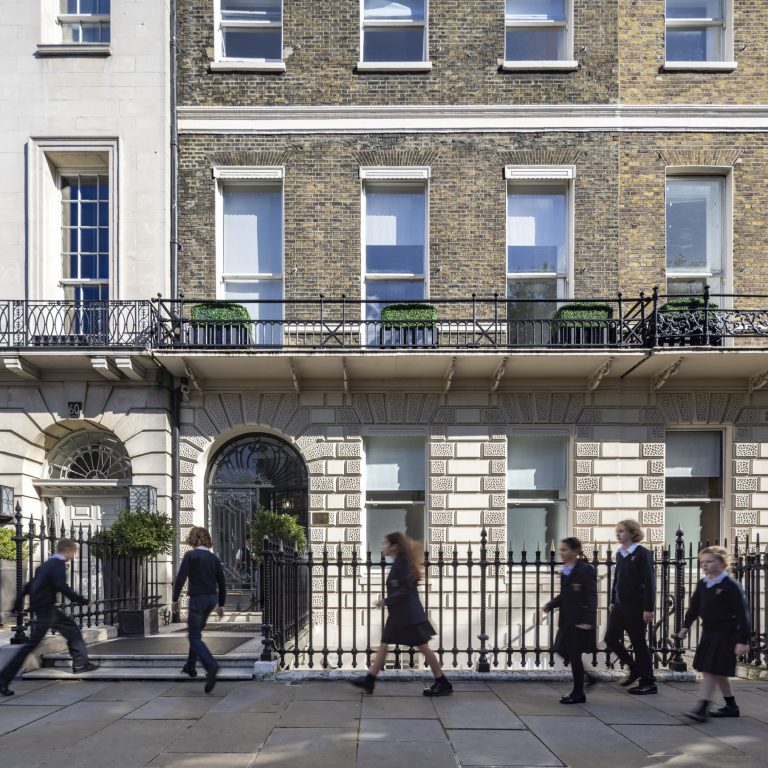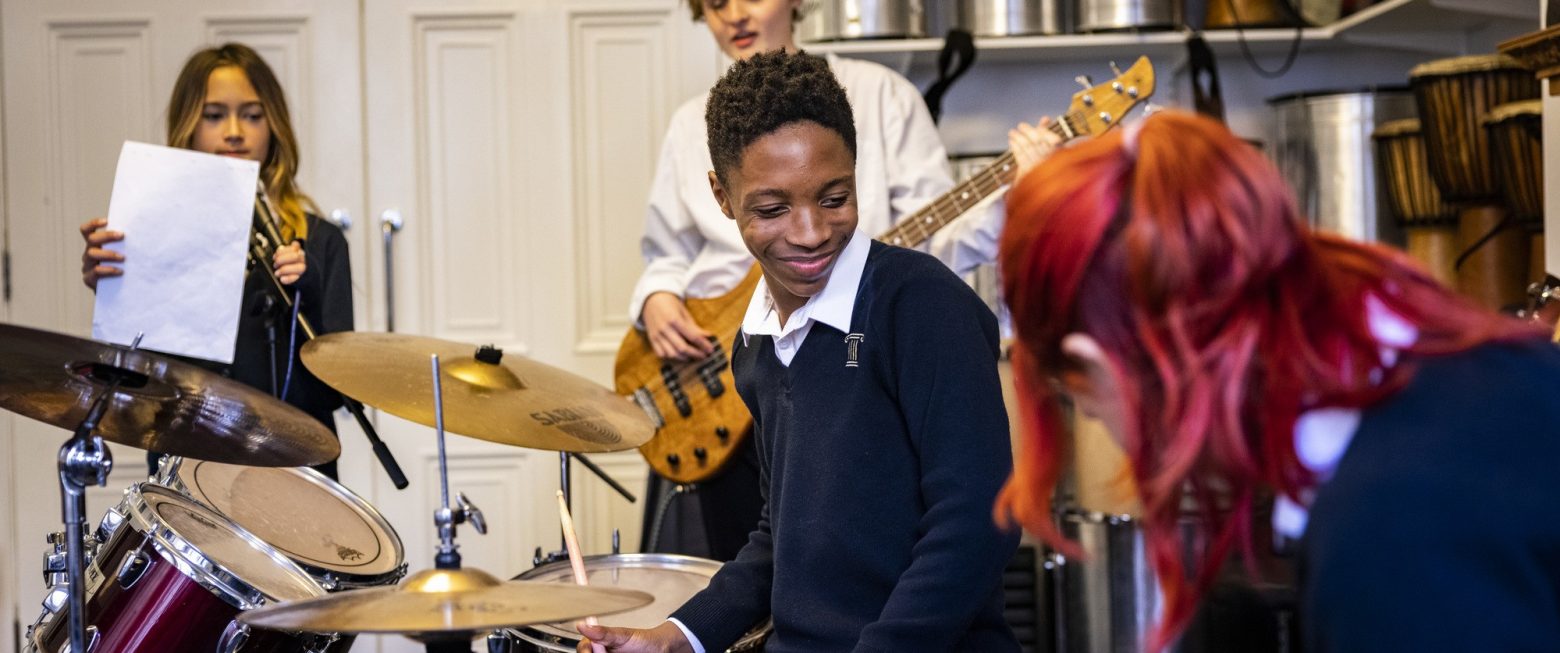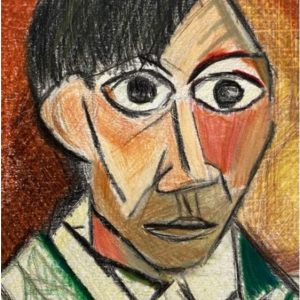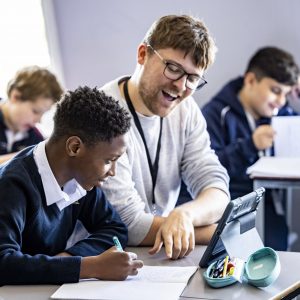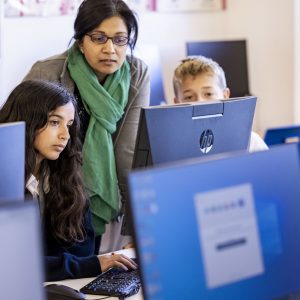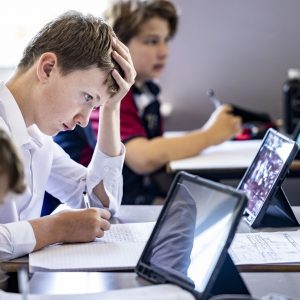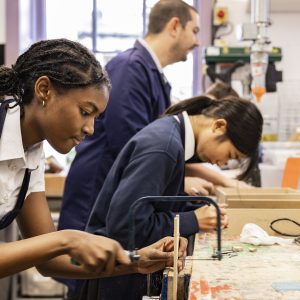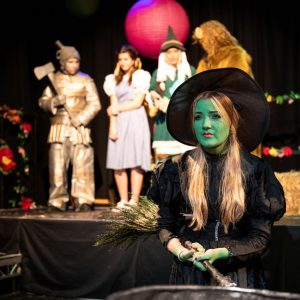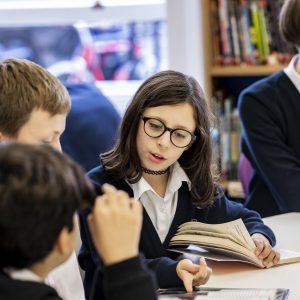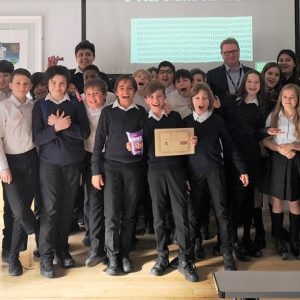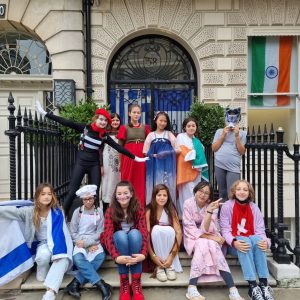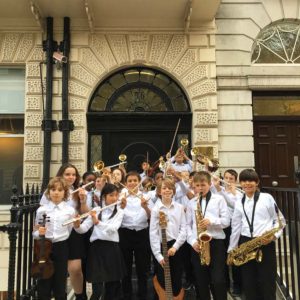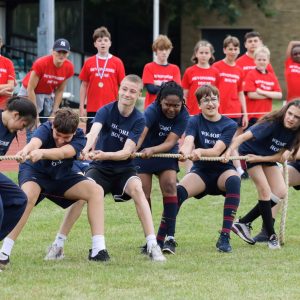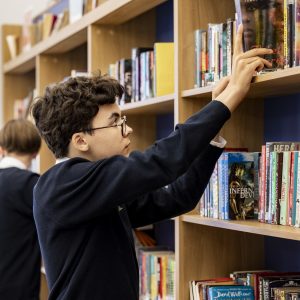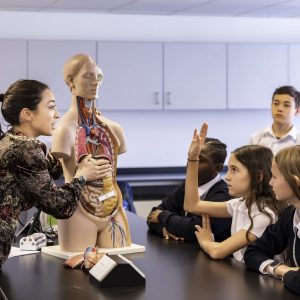Music at Portland Place is a thriving area of the curriculum and in the extra-curricular life of the school. Students have opportunities to study, perform, compose and appraise music from a diverse range of styles, genres and traditions, as well as becoming involved in the many ensembles, trips and visits that are on offer across the whole school.
Students in Year 7 typically receive two single lessons per week which focuses upon a practical approach to developing musical understanding. Students study the basics of music theory and work towards achieving a Grade 1 standard of understanding giving them a strong foundation as they work through Key Stage 3 and onto GCSE level. Year 7 benefit from the Symphonfree Scheme – a programme where all students learn an instrument for the whole year, including the loan of a school. This not only gives them the opportunity to study something they may not have been able to previously, but also supports and strengthens the curriculum as they actively use the theory skills taught in lessons. By the time we reach the end of the year, the Year 7 Symphonfree Orchestra performs in our summer concert, showcasing both their ability and musical journey.
Throughout Year 8 and 9, students have a single lesson of Music and continue to explore a variety of musical styles in a practical way, including Samba Drumming, West African Music, Reggae, Dub, Drum and Bass and Film Music, to name a few.
All students use the hands-on instruments such as the Samba drums, African djembe and keyboards, but also work on technical skills of sequencing and using notation-based software in our Music Suite, comprising 9 iMacs running Cubase, Sibelius, Logic Pro and Ableton.
GCSE students receive three lessons per week following the Edexcel specification and receive a 50% reduction on fees for individual music lessons.
All students across the school have access to the individual music tuition programme, delivered by our team of specialist Visiting Music Staff. These run over the course of the week and encourage and enthuse students, many of whom study for ABRSM, Guildhall or Rock School examinations, but others who simply prefer to learn their own selections of repertoire. We offer lessons in the following disciplines:
- Piano (Classical, Popular and Jazz)
- Voice
- Violin
- Viola
- Cello
- Double Bass & Bass Guitar
- Trumpet
- Trombone
- French Horn
- Flute
- Clarinet
- Saxophone
- Guitar (Acoustic, Electric and Classical)
- Music Theory
- Music Technology
- DJing
Our extra-curricular provision caters for the needs of the students and can be fluid from one year to the next as student interest and abilities demand. Standard ensembles available for students to join and rehearse in during the school day are:
- PPS Choir (open to the whole school)
- Chamber Choir (auditioned choir)
- Year 6 & 7 Choir
- Boys Choir
- String Ensemble
- Woodwind Ensemble
- Percussion Ensemble
- Rock Band
- Brass Ensemble
- Jazz Band
- Soul Band
- plus many student-led groups
These ensembles work towards the many performance opportunities there are during the school year, with the most prominent being the Christmas and Summer Concerts at external venues such as RADA Studios and Regent Hall, our Carol Service at All Souls Church, but also our smaller chamber concerts, whole school, and year group assemblies. We also regularly enter students for national competitions and have had success in the ISA Young Musician of the Year. The annual school production gets a good majority of the school involved and is always one of the highlights of the year, performing in a central London theatre with the full technical specifications of sound, staging, scenery and lights, accompanied by a band of professional musicians as well as our own students. Previous productions have included Anything Goes, Pyjama Game, Oliver, Bugsy Malone and The Wizard of Oz.
With central London venues on our doorstep, we arrange trips throughout the year for all students to concerts, musicals and museums as well as going further afield. Students from across the school experienced our Music and Drama trip to New York, and every other year we take our music ensembles on Music Tour to a European city to include performances as well as sight-seeing.
The Music Department comprises of two full-time dedicated Music teachers, a Music Administrator and the team of 12 Visiting Music Staff. The aim of the department is to promote creativity, develop a good musical understanding and appreciation amongst the young people at Portland Place, but mostly to have fun and make the most of as many experiences as they can.

